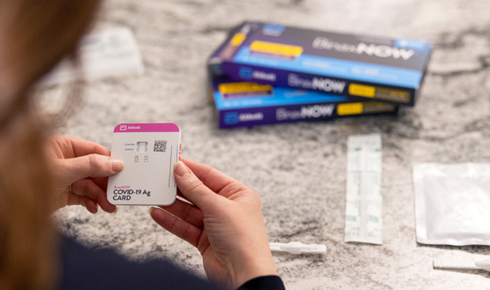In an age where convenience often determines consumer choices, home testing kits: what you need to know has become a vital topic for many. From checking blood sugar levels and cholesterol to detecting infections or even confirming pregnancy, home testing kits have revolutionized the way we monitor our health. As more people turn to these at-home diagnostic tools, understanding their reliability, usage, and limitations becomes increasingly important.
Understanding the Rise of Home Testing Kits
Home testing kits have seen a surge in popularity over the past decade. Driven by technological advancements and the global pandemic’s impact on healthcare accessibility, more individuals have started taking their health into their own hands. The idea of performing medical tests from the comfort of one’s home—without scheduling appointments or waiting in clinics—has broad appeal.
At their core, these kits are designed to offer a simplified version of clinical testing, providing results quickly and discreetly. Whether you’re monitoring a chronic condition or seeking early detection of a health issue, home testing kits provide an appealing alternative to traditional medical visits. However, with this growing trend, it’s crucial to explore both the benefits and the potential concerns that come with these tools.
🔍 Explore the Right Tests for Your Health Goals
Whether you’re addressing a specific health concern or simply staying proactive, Blue Horizon makes it easier than ever to take charge of your wellbeing. Their wide range of at-home testing kits gives you direct access to trusted lab results—quickly and discreetly.
From essential services like Thyroid Blood Testing and Female Health Panels to more in-depth investigations such as Lyme & Co-Infections Testing or DNA-Based Health Insights, everything is accessible online. Athletes and active individuals can also benefit from Sport Performance Testing to fine-tune their performance and recovery.
No queues, no appointments—just reliable testing delivered to your home. Take the first step toward informed self-care and explore health tests that align with your needs today.
Accuracy and Reliability: A Mixed Bag
One of the most common questions consumers ask about home testing kits: what you need to know involves accuracy. Not all testing kits are created equal. While some are FDA-approved and boast high reliability, others may provide inconsistent or unclear results. The accuracy of any home testing kit depends on several factors, including the type of test, the manufacturer, and the user’s ability to follow instructions properly.
For instance, at-home DNA testing for ancestry may be less critical in terms of precision compared to tests used for detecting infections or hormone levels. Medical-grade kits, especially those approved by relevant health authorities, tend to offer better results. Still, even the most accurate kits cannot replace a healthcare provider’s expertise. Misinterpreting a result or relying solely on a single test can lead to unnecessary anxiety or delayed treatment.
Ease of Use and Accessibility
Another compelling reason for the popularity of home testing kits is their user-friendly design. Most kits come with detailed instructions, and many are tailored for first-time users with no medical background. The packaging usually includes all necessary tools such as collection swabs, vials, and prepaid shipping materials for lab testing, if needed.
Moreover, accessibility is a major advantage. Individuals living in remote areas or those with limited mobility find home testing kits particularly useful. Instead of navigating the logistics of in-person visits, they can simply order a test online and complete it at their convenience. This democratization of health testing has played a critical role in encouraging proactive health monitoring.
Privacy and Discretion Matter
For sensitive health issues—such as sexually transmitted infections or fertility concerns—privacy is often paramount. Home testing kits allow users to maintain discretion while seeking answers. There’s no need to disclose personal concerns to a receptionist or sit in a waiting room. The testing and results can be handled confidentially, which can reduce the stigma or discomfort sometimes associated with certain medical conditions.
Understanding how privacy is handled is another key component of home testing kits: what you need to know. Reputable providers follow strict data protection regulations and ensure that customer information is handled securely. However, it’s essential to review privacy policies before purchasing a kit to ensure your data is protected.
Potential Risks and Limitations
Despite the many advantages, there are limitations associated with home testing kits that consumers should be aware of. False positives or false negatives are always a possibility, especially if the test is used incorrectly or is of poor quality. Some conditions may also require multiple types of tests or clinical evaluations for an accurate diagnosis—something home kits cannot always provide.
Furthermore, there’s a psychological aspect to consider. Receiving a positive result for a serious condition can be emotionally overwhelming, especially without immediate access to professional guidance. That’s why many kits now offer follow-up consultations with healthcare professionals, either through telemedicine or by directing users to local providers.
Understanding these limitations is critical. While home testing kits serve as valuable tools, they should complement—not replace—comprehensive medical care.
Regulations and Certification Standards
A critical factor in the safety and effectiveness of home testing kits lies in regulatory oversight. When researching home testing kits: what you need to know, it’s important to identify whether the product has been approved or certified by recognized health authorities. In the U.S., for example, FDA approval or clearance signifies that the product meets specific safety and efficacy standards.
Similarly, kits that involve laboratory analysis should use labs certified under the Clinical Laboratory Improvement Amendments (CLIA). Certification ensures the lab operates under stringent quality control procedures and meets high clinical testing standards. Consumers should avoid kits that do not clearly disclose regulatory status or use of accredited laboratories.
Types of Home Testing Kits Available
The variety of home testing kits continues to grow. Today, you can find kits for nearly every aspect of health and wellness, including blood glucose monitors, cholesterol tests, food sensitivity assessments, vitamin deficiency checks, hormone testing, and more. Some even cater to niche concerns like thyroid function or sleep quality.
There are also combination kits that screen for multiple biomarkers in one go, offering a more comprehensive overview of your health status. Understanding the specific function and scope of each test is a vital part of choosing the right kit for your needs.
When to See a Doctor
Even the most accurate home testing kits cannot replace the insight of a licensed medical professional. One key takeaway from home testing kits: what you need to know is the importance of follow-up. If a home test yields concerning results—or if you’re unsure how to interpret the outcome—it’s crucial to consult a healthcare provider.
A doctor can confirm results, suggest further testing, and provide personalized treatment plans. Relying solely on at-home testing without professional guidance can be risky, particularly for chronic or complex conditions.
Final Thoughts on Home Testing Kits
As personal healthcare becomes more consumer-driven, home testing kits offer a convenient, cost-effective, and empowering way to stay on top of your health. They’ve changed the healthcare landscape by making health data more accessible and actionable. However, with this convenience comes responsibility.
Take control of your health with the growing trend of home blood testing. Learn more about gut health, thyroid checks, and men’s testosterone. Discover key insights into women’s wellness and men’s health. See how at-home testing is shaping the future of healthcare.
Understanding home testing kits: what you need to know equips you to make informed decisions. From verifying the credibility of a kit to knowing when to seek medical advice, responsible use is key. Home testing kits are powerful tools—but they’re most effective when used in partnership with professional medical guidance.




